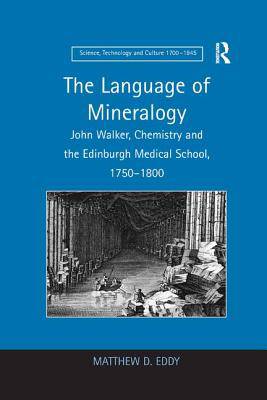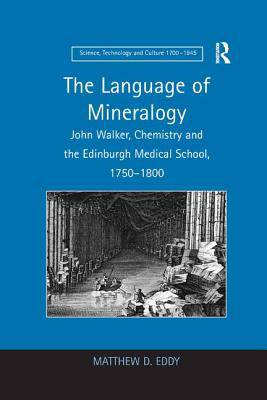
- Afhalen na 1 uur in een winkel met voorraad
- Gratis thuislevering in België vanaf € 30
- Ruim aanbod met 7 miljoen producten
- Afhalen na 1 uur in een winkel met voorraad
- Gratis thuislevering in België vanaf € 30
- Ruim aanbod met 7 miljoen producten
Zoeken
Language of Mineralogy
John Walker, Chemistry and the Edinburgh Medical School, 1750-1800
Matthew D Eddy
€ 106,95
+ 213 punten
Omschrijving
Classification is an important part of science, yet the specific methods used to construct Enlightenment systems of natural history have proven to be the bÃate noir of studies of eighteenth-century culture. One reason that systematic classification has received so little attention is that natural history was an extremely diverse subject which appealed to a wide range of practitioners, including wealthy patrons, professionals, and educators. In order to show how the classification practices of a defined institutional setting enabled naturalists to create systems of natural history, this book focuses on developments at Edinburgh's medical school, one of Europe's leading medical programs. In particular, it concentrates on one of Scotland's most influential Enlightenment naturalists, Rev Dr John Walker, the professor of natural history at the school from 1779 to 1803. Walker was a traveller, cleric, author and advisor to extremely powerful aristocratic and government patrons, as well as teacher to hundreds of students, some of whom would go on to become influential industrialists, scientists, physicians and politicians. This book explains how Walker used his networks of patrons and early training in chemistry to become an eighteenth-century naturalist. Walker's mineralogy was based firmly in chemistry, an approach common in Edinburgh's medical school, but a connection that has been generally overlooked in the history of British geology. By explicitly connecting eighteenth-century geology to the chemistry being taught in medical settings, this book offers a dynamic new interpretation of the nascent earth sciences as they were practiced in Enlightenment Britain. Because of Walker's influence on his many students, the book also provides a unique insight into how many of Britain's leading Regency and Victorian intellectuals were taught to think about the composition and structure of the material world.
Specificaties
Betrokkenen
- Auteur(s):
- Uitgeverij:
Inhoud
- Aantal bladzijden:
- 332
- Taal:
- Engels
- Reeks:
Eigenschappen
- Productcode (EAN):
- 9781138265646
- Verschijningsdatum:
- 15/11/2016
- Uitvoering:
- Paperback
- Formaat:
- Trade paperback (VS)
- Afmetingen:
- 156 mm x 234 mm
- Gewicht:
- 467 g

Alleen bij Standaard Boekhandel
+ 213 punten op je klantenkaart van Standaard Boekhandel
Beoordelingen
We publiceren alleen reviews die voldoen aan de voorwaarden voor reviews. Bekijk onze voorwaarden voor reviews.








